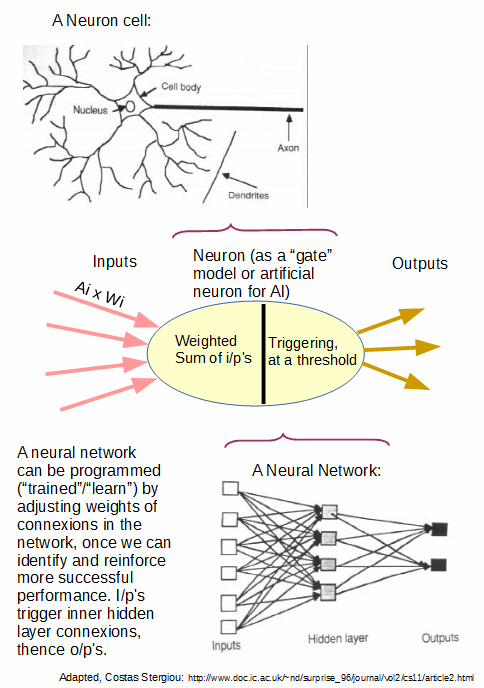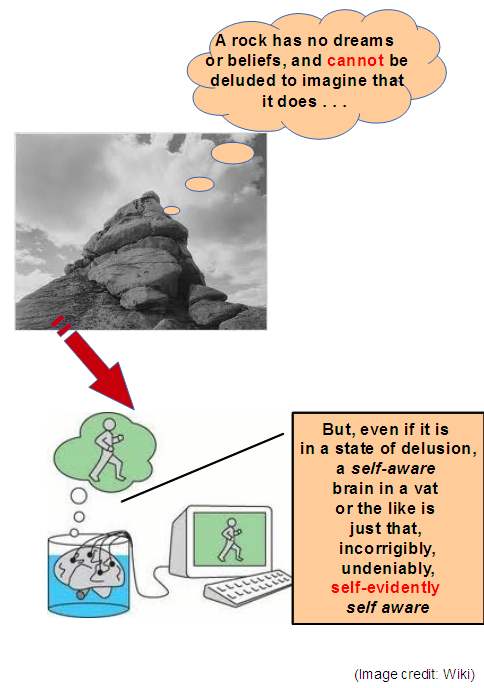Design theory infers to design on inductive inference on tested reliable empirical signs. While many are disinclined to accept such inferences on matters linked to origins, that says more about lab coat clad materialist ideological a prioris and their cultural influences than it does about the actual balance of evidence on the merits.
But also, design implies designer.
One who exhibits creative, purposeful, imaginative, skilled intelligence adequate to configure a functionally specific, complex organised information-rich entity. Ranging from the text of this contribution (well beyond the 500 – 1,000 bits of FSCO/I that are easily shown to be beyond the plausible reach of blind chance and mechanical necessity on the gamut of solar system or observed cosmos), to complex body plans, to the DNA code — code! — involved, to first cell-based life to the complex fine tuned cosmos that facilitates the possibility of such life.
But, it seems, genuinely independent, conscious, purposeful, creative designing mind is also under materialist interdict.
Never mind the still telling force of famed Evolutionist J B S Haldane’s apt turn of the 1930’s observation:
“It seems to me immensely unlikely that mind is a mere by-product of matter. For if my mental processes are determined wholly by the motions of atoms in my brain I have no reason to suppose that my beliefs are true.They may be sound chemically, but that does not make them sound logically. And hence I have no reason for supposing my brain to be composed of atoms. In order to escape from this necessity of sawing away the branch on which I am sitting, so to speak, I am compelled to believe that mind is not wholly conditioned by matter.” [“When I am dead,” in Possible Worlds: And Other Essays [1927], Chatto and Windus: London, 1932, reprint, p.209. (Highlight and emphases added.)]
So, I think it is time to put the mind back on the table.
Starting with the principle that rocks have no dreams:
Which, means that conscious mind is categorically distinct from blind mechanism based on cogs acting blindly on other cogs, or the substantial equivalent.
And continuing with the issue that blind mechanical processing is inherently limited by that blindness . . . a rock has no dreams, including “dust” reconfigured as neural network “gate” arrays:

I do so here, as there is a video involved that I doubt can be embedded at UD.
So. now, let us ponder the GIGO principle. As wiki aptly summarises (inadvertently testifying against known ideological inclination):
Garbage in, garbage out (GIGO) in the field of computer science or information and communications technology refers to the fact that computers, since they operate by logical processes, will unquestioningly process unintended, even nonsensical, input data (“garbage in”) and produce undesired, often nonsensical, output (“garbage out”).
Yes, blind mechanisms do not ask un-programmed questions and if out of whack or inadequately debugged, will just as blindly spew out garbage. They are utterly unreasoning, glorified calculation devices.
So, I say: GIGO-limited computation is not contemplation.
Again, I say: contemplative, creative designing mind does not credibly emerge from blind chance and mechanical necessity.
Yet again, I say: contemplative mind is categorically different from blindly computing matter, as a rock has no dreams.
So, now, what do you say, why? END
